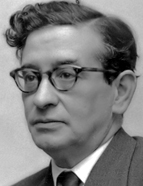

We can see in all of these works the development of a theory of Portuguese history that defies the thesis of an alleged 17 th -century decadence influenced by the Inquisition: instead, it highlighted instead the idea of a colonising nation. If there is—at least apparently—an attempt to associate this universalist perspective with a Hispanist theory that was certainly influenced by António Sardinha ("Cultura peninsular no Renascimento", Nação Portuguesa, 1925), the truth of the matter is the author soon distanced himself from that theory ("Espanha e Portugal" [Spain and Portugal], id. , 1927). The works of Manuel Múrias focused on a broad perspective, especially from the mid-1930s onwards. He attempted to integrate an entire Atlantic axis (Portugal, Brazil and Africa) into a teleological vision in which Portugal plays a central role as a discovering, evangelising, and civilising nation that aimed for the "nation to be fulfilled" ( Portugal: Império [Portugal: an Empire], pp. 164 and following pages). In fact, in Múrias' view, Portugal was first and foremost an Atlantic country, unlike Spain, that was an essentially European nation with an overseas propensity that was more an exploitation of a specific historical circumstance than a true vocation, the greatest exponents of which always owed a debt to the Portuguese influence (for example, Columbus or Magellan).
Manuel Múrias' historiographical thinking is based on a conservative, nationalist ideology and an anti-modern discourse, largely inherited from his formative period as a disciple of António Sardinha and the Integralism matrix. In the history of Portugal, following Jacques Maritain's reflection for France, Múrias sees three great revolutionary moments after the Middle Ages: the Reformation, Cartesianism, and the French Revolution ( Idem pp. 11-13). And even though the author considered the first two moments had no significant impact on Portugal (the Reformation due to the action of the Inquisition and the scientific revolution due to the neo-Thomist dynamic and Jesuitism), the adoption of the ideas of the French Revolution represented the nation's capitulation to a foreign influence that it had resisted on several occasions (at the time of the Restoration, after Pombalism, and after the victory in the Peninsular War) and which materialised in monarchical constitutionalism and the republic. He sees this period—again in line with the majority of traditionalist intellectuals—as one of "denationalisation" which, in his view, only began to be reversed from the second decade of the 20th century onwards by "half a dozen men" (the first integralist generation) trying to "make Portugal Portuguese again" ( Idem , p. 13).
This work is financed by national funds through FCT - Foundation for Science and Technology, I.P, in the scope of the projects UIDB/04311/2020 and UIDP/04311/2020.
